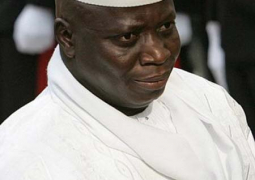The
Fortunes of Africa: A 5,000-Year History of Wealth, Greed, and Endeavour. By
Martin Meredith.
“Do not talk to me of gold…[it] brings more dissension, misfortune and unexpected plagues in its trails than benefits.” So said Paul Kruger, president of the small Boer republic of the Transvaal in 1885 when he was told that gold had been found on the country’s eastern border. Kruger went on: “Every ounce…taken from the bowels of our soil will yet have to be weighed up with rivers of tears.” His prescience was remarkable. Within scarcely a decade his country’s independence had been snuffed out by Britain, which lusted to control the world’s richest gold mines.
This anecdote finds many echoes across the ages and from country to country in a sweeping new history of Africa by Martin Meredith, a historian with an acute eye for detail and a firm grip on the forces that swept the continent. Africa’s profusion of natural wealth—whether gold, ivory or the very bodies of its inhabitants—served not to enrich its peoples but to impoverish and enslave them. Going back to the time of Egypt’s pharaohs, he notes, Africa’s riches have been coveted.
This is a familiar tale for Mr Meredith, a former journalist and a biographer with a deep affinity for Africa. For readers of his earlier book, “The State of Africa”, some bits may feel a touch too familiar, as he revisits old themes. Yet that is a minor quibble to take with a book that addresses one of the main criticisms of his previous work: that it limited itself to telling the story only of Africa’s half-century since independence. Liberated in time, Mr Meredith’s new book explores the horrors suffered by Africans at the hands of its early rulers and traces the forays of Arabs and Europeans into its interior in search of treasure.
Of wealth there was no shortage. In 1324, when King Mansa Musa of Mali stopped in Cairo while making the pilgrimage to Mecca, he distributed so much gold that he destroyed the value of money for at least a decade. His wealth, Mr Meredith contends, was so vast that he was the richest man the world had ever seen. Others made fortunes too, from the great caravans of ivory that snaked their way out of jungles or the boatloads of wild rubber harvested in the Congo, often carried by slaves who were then themselves sold.
Of misery there was more. In 1882 a British mariner watched a huge caravan of slaves toting ivory pass on its way to Zanzibar. Speaking with the headmen in charge, he asked what happened to mothers who became too weak to carry both their children on their backs and the tusks of ivory on their heads. “We spear the child and make her burden lighter,” was the reply. “Ivory first, child afterwards!”
Mr Meredith artfully weaves together exploration, trade and geography in a narrative that is both detailed and arresting. Yet important questions about the economics of the trade are answered only tangentially: for instance, why a pound of ivory was worth 200 times more in Zanzibar than in the inland areas around Lake Tanganyika, where it was gathered. The book’s last chapters race breathlessly through important events of the past few years, including China’s huge investment in Africa and the theft and corruption in Nigeria, without pausing to analyse, explain or conclude. In the end Mr Meredith leaves the reader bursting with a wealth of facts, but hungering for a richer explanation.
Available from Timbooktoo, tel 4494345.


